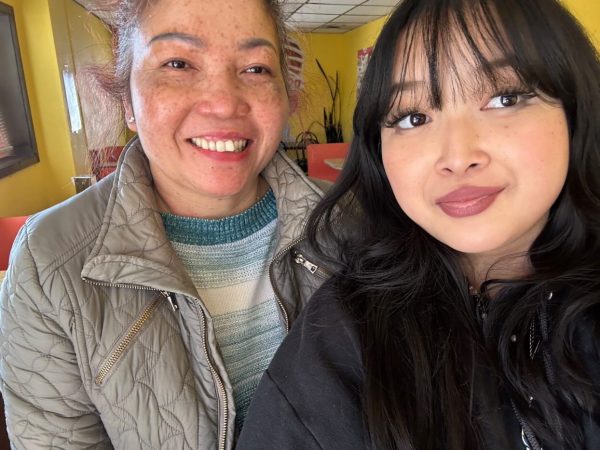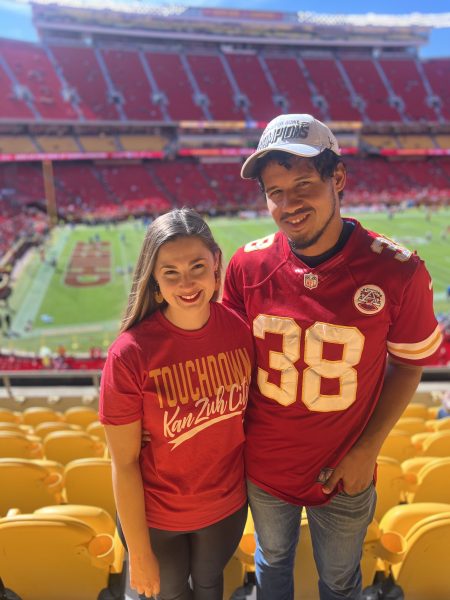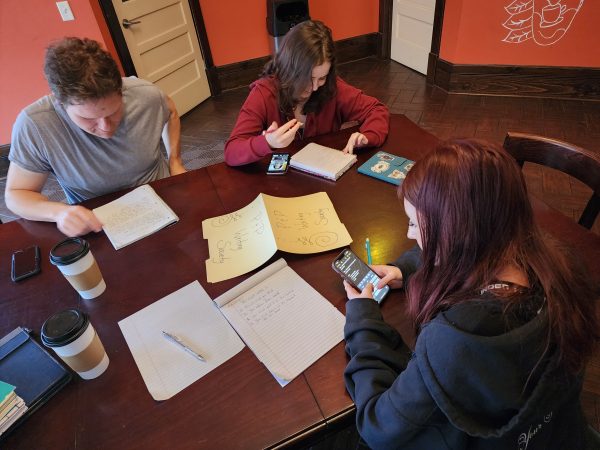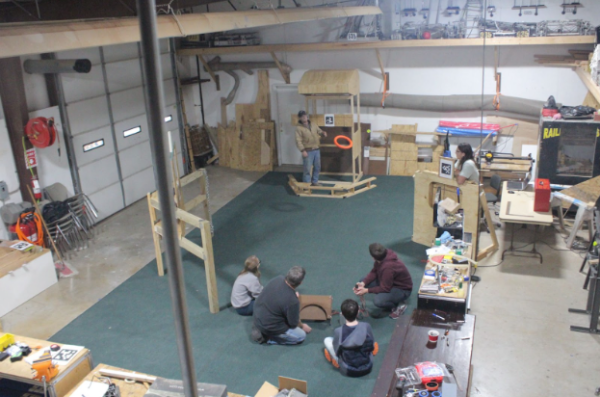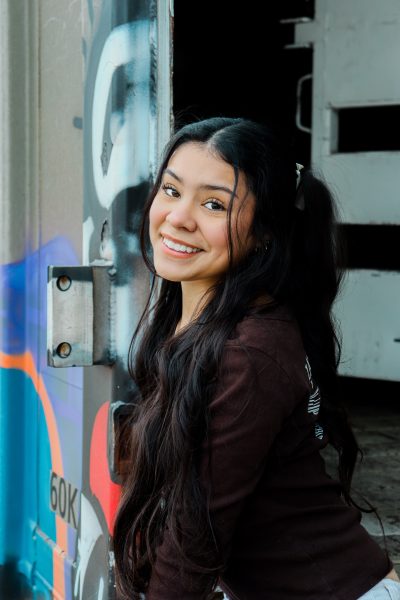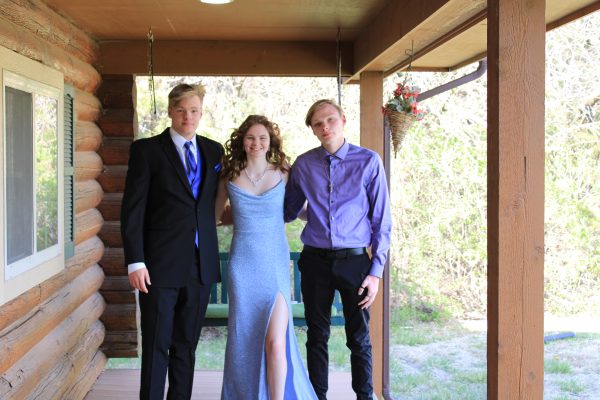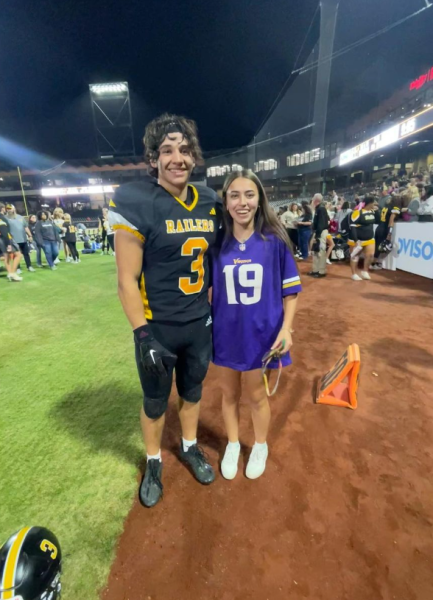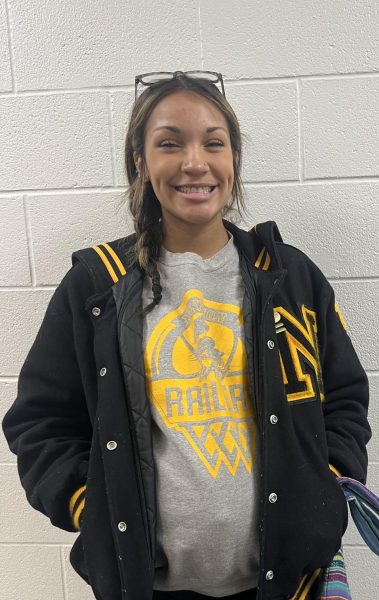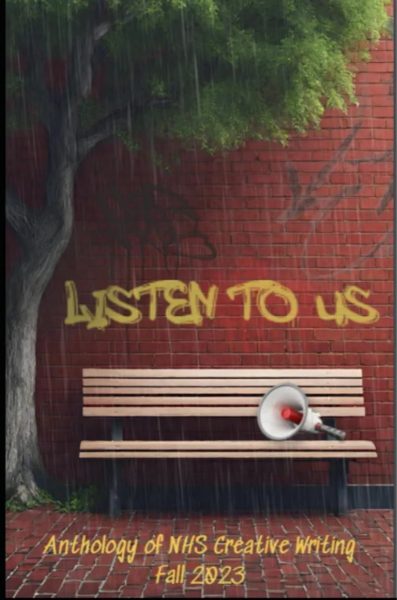Club leaders talk about what they do
Newton High School is proud of its diverse student body. With over 1,000 students – 1,000 unique combinations of talents, interests and goals roam the school. One way the school’s diversity manifests itself is in its highly varied and numerous selection of school clubs it offers. Not only do these offerings allow students to express their unique identities and explore their interests, whether popular or niche, they also allow them to develop skills critical to their success in their lives after high school: leadership, responsibility and teamwork. Students who go above and beyond are those who wish to increase their involvement from simply being participants to being leaders.
Sending Sunshine
Many underclassmen believe leadership positions are reserved for upperclassmen. Although it is true that club leaders are typically students who have been active for two-three years and have demonstrated their strong commitment to the club, there are still opportunities for ambitious underclassmen who have the will to look for them.
One such student is freshman Dayali Sanchez, who founded a new club along with her two sisters, juniors Natalie and Anahi Sanchez, and the club sponsor and business teacher, Amanda Gillespie. The club is a chapter of Sending Sunshine, a national service-based organization dedicated to fighting social isolation among senior residents through handwritten cards. After learning of the devastating rise of isolation, loneliness and depression that the elderly experienced due to the COVID-19 pandemic and quarantine, Sanchez and her sisters decided to act and do what they could to help seniors in their community. Gillespie, too, felt compelled to bring the organization to the high school because of its altruistic purpose.
“The vision behind the club is so beautiful. We send cards to senior citizens so they never feel alone,” Gillespie said. “Who wouldn’t want to be part of an organization that spreads kindness to our elders?”
Besides the three co-presidents, the club also has two Quality Control Managers and one Treasurer. Sanchez credits her successes in managing her duties as a leader on top of schoolwork to the club’s creation of other leadership positions. The clubs’ leaders each focus on one aspect of leading that is most compatible with their talents and personality. Dayali Sanchez, for instance, uses her creativity and artistic abilities to make any posters or graphics needed to promote the club, such as the booth that the club used during Railer Palooza to attract members.
“We each have things that we take charge of and communicate what we can all bring to the table when it comes to planning and advertising Sending Sunshine,” Sanchez said.
Gillespie said the service that club members engage in, what makes the club special is the level of ownership that students have.
“The wonderful thing about this club is that it is a student-led organization. The teacher’s workload is minimal. Student leaders lessen the workload for the teacher drastically. When students are actively involved it directly relates to the workload of the teacher,” Gillespie said. “The most important role for me is that I provide materials and meeting space for the members so that they are allowed to create cards for those that are in need.”
Debate Club
Another new club that has created leadership opportunities for students at NHS is the Speech, Debate and Forensics Club, led by junior Preston Vicenzi as well as the club sponsor and debate and forensics coach, David Williams. Established at the beginning of this school year, the club is meant to support members of the debate and forensics teams by giving them additional time to engage in discussions about politics, current events and ideas about how to solve current problems around the world, hopefully, advantageous to their performances at competitions. The overlap between the club and his classes has proved useful to Williams when balancing his time between them.
“Debate club is designed to support what I do in debate classes and debate competitions. I have to do those things so it isn’t as stressful. In fact, debate club compliments the other debate and speaking activities our school does,” Williams said.
Vicenzi has also developed strategies to most efficiently complete his duties as a club leader while also ensuring that he does not neglect his responsibilities as a student.
“I’ve been able to manage both leading a club as well as school work through trying to incorporate my club with my school work. What this looks like is finding time to bring the club activities to the classwork I do so I get two birds with one stone. Another method is scheduling that works, trying to find time is vastly more important than anything else and balancing is the only way to control stress,” Vicenzi said.
His focus on time management as well as the creative integration of his work as a student and as club president has allowed him to become an exemplary leader. His impressive list of responsibilities includes guiding the club’s members and organizing home tournaments.
“My responsibilities as the club leader is to ensure that my team is ready for state, so I help alongside the sponsor and coach to prepare my team for competition. A few other responsibilities include organizing the home tournaments we host, managing tournament costs and helping get others to join,” Vicenzi said. “I am currently working on getting my team ready for their first tournament as well as helping coach my team on certain events they can do before state.”
While being a club leader can be an incredibly rewarding experience, both in personal development and building of a portfolio, Vicenzi wants NHS students to know that in order to be successful in attaining a position and in performing a role as a leader requires dedication, drive and most importantly—passion.
“Show that you want the position. If you go into the club and ask to be a leader without having connections to the people in it or not developing a relationship or drive within that little community could hurt your chances. It’s all about the passion for the project,” Vizenci said.
HOSA
Another NHS club leader is junior Abby Koontz, president of HOSA, who leads along with other club officers and two club sponsors, Richard Mick and Fred Schmidt—two teachers in the health science pathway. While HOSA does have two sponsors, student leadership is valued in the club, so many activities are initiated and led by students.
“We try to give them as much responsibility as possible so they hopefully take ‘ownership’ in the activities,” Mick said.
HOSA’s process for beginning new projects gives students the freedom to be creative and tackle challenges that they are passionate about, such as the AED fundraiser the club held earlier this year.
“I bring my ideas to the sponsors and usually they are supportive. Once an idea is approved, I talk with some of my fellow officers and we take further initiative,” Koontz said.
The club’s emphasis on developing students’ leadership skills is also helpful in its dispersion of responsibility. According to Mick, the additional workload he undertakes as the sponsor is not too great. This can be attributed to leaders, such as Koontz, who welcome taking on some of the responsibility.
“Sometimes it can be stressful, but balance is key. It’s important to complete all of my schoolwork but also think about the club in my free time,” Koontz said. “Although it can be time-consuming, I find it enjoyable and would love to continue … I am very glad that I was given this role.”
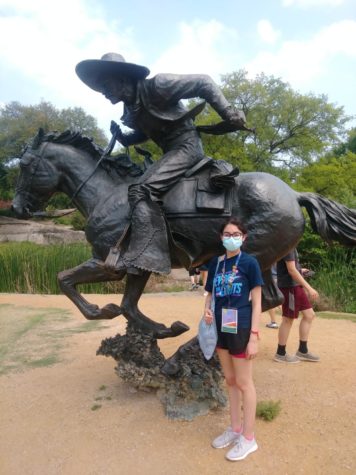
Anahi Sanchez is a junior, and this is her first year as a staff member for the Newtonian. She is part of the STAND Board, president of Chemistry Club,...

